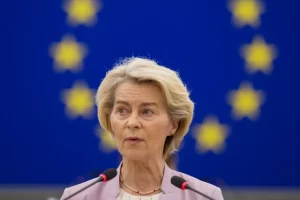Investors, exporters urge more aggressive approach from China

As Beijing strives to revive its economy with a slew of stimulus measures, private and foreign entrepreneurs remain cautious about their investment strategy in China, calling policies too narrow and insufficient to revive confidence amid economic headwinds.
Private investors and international exporters said they were holding off on new investments or shifting focus overseas, pressing for more “tangible” and “broader-based” actions.
“The Chinese government needs to take more tangible and comprehensive actions, rather than simply offering financial adjustments, which are often more notional than practical,” said Deepak Khanna, vice-president for the Asia-Pacific region at Indian home appliances company Usha International.
Khanna, whose company also operates in Guangzhou, said the recent announcements from the Ministry of Finance “failed to deliver the broad-based stimulus many had hoped for”.
Last week, officials outlined a set of policies to defuse local debt risks and stabilise the property market.
Advertisement
But while reiterating the central government still had “room” to raise debt and the fiscal deficit, the finance ministry did not reveal any broad-based stimulus measures.
What’s needed is a broader approach that prioritises international trade, deepens ties with partners like India, and strengthens domestic financial institutions
Deepak Khanna, Usha International
This came as part of Beijing’s broader efforts to reach its economic growth target of “around 5 per cent” for this year, following initiatives from other state bodies, with the People’s Bank of China unveiling cuts to mortgage rates and the National Development and Reform Commission advancing 100 billion yuan (US$14 billion) from the central budget for 2025.
Advertisement
But Khanna said relying on treasury or local government bonds – which ultimately draw on public funds – was insufficient to drive sustainable growth.
“What’s necessary is a more aggressive approach that could stimulate both domestic consumption and international trade,” he added.
“What’s needed is a broader approach that prioritises international trade, deepens ties with partners like India, and strengthens domestic financial institutions, particularly banks, which are critical to the success of any stimulus strategy.”
A customer shops at a Beijing supermarket on Thursday. Weak consumption continues to strain China’s economic recovery. Photo: Reuters
China goes all out to stabilise vital property sector: as it happened
Chinese Housing and Urban-Rural Development Minister Ni Hong leaves at the end of a press conference on the property sector in Beijing. Photo: Reuters
US sends second flight of migrants back to China for repatriation
Chinese migrants wait to be processed after crossing the US-Mexican border on May 8, 2024, near Jacumba Hot Springs, California. Photo: AP
Too little, too late? China’s GDP to disappoint, adds to call for more stimulus
China’s exports grew by 2.4 per cent year on year in September, falling short of expectations while also decelerating from the 8.7 per cent rise in August, customs data showed on Monday.
Officials cited extreme weather disruptions, global shipping congestion and base effects as contributing factors for the slowdown.
“I hold such similar views to many entrepreneurs I know, that this economic downturn is global and coupled with geopolitical suppression from developed countries against China, few places can remain unaffected,” he said.
“The Ministry of Finance’s message is aimed at stabilising society, especially the expectations of the public.
“However, as an entrepreneur, our views on economic prospects and cash flow differ from those of middle-class and individual investors.”
Huang said he had put new investments on hold, stressing the fiscal stimulus would not change his thinking.
A similar strategy was also shared by Norman Cheng, a leading helmet manufacturer with factories in Vietnam, the European Union and China.
“Business overseas has been terrible these last few years,” Cheng said.
“Geopolitical challenges ahead forced us to go to Vietnam to set up facilities, and I see this only intensifying.”
And while calling the stimulus as “too little and too late” to ease the capital outflow and local debt crisis, Cheng urged more proactive measures to attract foreign investment.
“I think the government is obsessed with the outflow,” he added.
“But there is the other half of the equation. Why not focus a little bit more on encouraging inflow? Make China attractive for investment. Open up sectors that are currently closed. Simplify import and export processes.”





